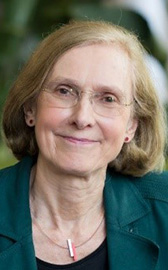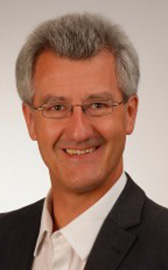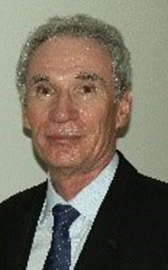Ethics Board
The Ethics Board is composed of five independent specialists in ethics and legal matters relevant for the implementation of EJP SOIL. The board is selected based on expertise in ethics and legal matters, their independence from EJP SOIL beneficiaries and their interest in the scope of the EJP SOIL.
The Ethics Board identifies and monitors ethical issues involved in the overall EJP SOIL programme activities, the selection of research topics for calls, the composition of the review board for proposals and in the projects funded under the internal and external calls (via ethics screening and project reporting).
Upon consultation, the Ethics Board will provide feedback and guidance on compliance with H2020 ethics and research integrity standards throughout the EJP SOIL programme implementation.
The Ethics Board assesses the deliverables related to the development of ethical and legal framework, data protection and data management plans, and provides quality assurance with regard to completeness and compliance of these deliverables.

Prof. emeritus Mary Ritter
International ambassador Climate KIC & Professor emeritus Immunology, Imperial College London (ICL)
Brief CV
Mary Ritter was CEO (2010-2014) of the EU’s EIT Climate-KIC - Europe’s largest public-private partnership addressing climate change - guiding it from inception to a pan-European cross-sectorial innovation community in of >200 (in 2014/15; now >400) partners from academia, business and regional/city government, working to innovate for net zero-carbon prosperity and climate resilience. She is now the KIC’s International Ambassador looking to deploy the full force of European ingenuity beyond the borders of Europe, connecting with and building key climate innovation ecosystems globally for accelerating and scaling impact. In 2015-2016, she established and led a cross-sectorial team in Australia to develop the independent ‘Climate-KIC Australia’ - launched in 2017 and now providing a collaborative innovation platform in the Asia-Pacific region. Her current work focusses on collaboration with innovation ecosystems in California, India, China and Israel, working not only with EIT Climate-KIC but also across the whole EIT Community of 8 Knowledge and Innovation Communities (KICs).
Mary is Professor Emeritus and previous Pro Rector for International Affairs at Imperial College London (2004-2011). She sits and has sat on many international and national boards, currently including: Climate-KIC Australia Governing Board; National Research Foundation Fellowship Evaluation Panel, Singapore and Bernal Institute Advisory Board, University of Limerick, Ireland and until recently the RISE Advisory Group for EU Commissioner Moedas. She is an elected Fellow of the Royal Society for the Encouragement of Arts, Manufactures and Commerce (FRSA), Royal College of Pathologists (FRCPath), Royal Society of Biology (FRSB) and City and Guilds Institute (FCGI). She was awarded an OBE in the UK 2014 New Year Honours for her services to scientific research and innovation.

Dr. Nikolai Svoboda
Geographer, Leibniz Centre for Agricultural Landscape Research (ZALF)
Brief CV
Nikolai Svoboda is since 2015 the coordinator of BonaRes Data Centre, at the Geodata Working Group of the Research Platform "Data Analysis & Simulation" of ZALF. “BonaRes” is short for “Soil as a sustainable resource for the bioeconomy”. In this funding initiative of the German Federal Ministry for Education and Research (BMBF) the focus is on the sustainable use of soils as a limited resource. The ultimate goal of BonaRes is to extend the scientific understanding of soil ecosystems and to improve the productivity of soils and other soil functions while developing new strategies for a sustainable use and management of soils. The BonaRes Portal provides information about the BonaRes projects, access to FAIR data, knowledge and models, as well as to decision support options for a sustainable soil management.
Before working for BonaRes, he worked in the project ‘Sustainable land management in the North German Lowlands’ (NaLaMa-nT) at ZALF. Nikolai did his PhD research on nitrate leaching after digestate application in cash crop and fodder production. He obtained his doctor degree in 2011 from the Institute of Crop Science and Plant Breeding at the Christian-Albrechts-University in Kiel.

Helmut Hönigmayer, M.Sc.
Researcher and GDPR officer, Institute for Advanced Studies (IHS)
Brief CV
Helmut Hönigmayer is a researcher and scientific manager with the Techno Science and Societal Transformation group at the Institute for Advanced Studies in Vienna. He studied Law and Political Science at the University of Vienna and is a certified Data Protection Manager (Danube University Krems). His areas of expertise include Data Protection, Research Ethics, Technology Assessment, Evaluation and the concept of Responsible Research and Innovation (RRI).
Since 2017, Helmut has served as the Ethics and Data Protection Officer in the H2020 funded research project NewHoRRIzon, which aims to further integrate Responsible Research and Innovation (RRI) into the research and innovation systems on national and international levels. Furthermore, he is holds similar ethics and data protection related positions in many other national and international projects. Besides these activities and alongside other colleagues, he is currently engaged in setting up a project to analyze the (potential) challenges of applying the GDPR in scientific research and to develop strategies on how to overcome them.

Dr. Bernard Mallet
French national agency for research (ANR)
Brief CV
Bernard Mallet is a senior scientist in tropical forestry and agroforestry. He has been involved as CIRAD (Centre de cooperation international en recherche agronomique pour le développement) scientist in research program management for last three decades with African, Asian and Latin American countries. He is now working for three year for the French ANR (National Research Agency). He is involved in various joint R&I projects (LEAP-Agri: deputy coordinator; LEAP4FNSSA: task leader) which intend to promote long term partnership between European and African funding agencies and research organizations, in line with the EU AU priority on FNSSA (Food and nutrition security and sustainable agriculture).
Bernard was posted 20 years in tropical countries (Congo Republic; Côte d’Ivoire; Brazil) and has been in charge of tropical forestry and agroforestry projects management in partnership with most tropical countries. He was Head of the CIRAD “Forest Plantation and agroforestry program” from 1998 to 2004, then Director of the CIRAD Forest Department from 2005 to 2007. He has been appointed Deputy Director for the “Environment and societies” Department from 2007 to 2010. He was CIRAD Director and NRA representative for Brazil from 2010 to 2016, with a specific focus on natural forest management in the Amazon region and on forest plantations environmental impact. He has been working as an expert within various R&D projects and with the European commission (National Expert for DG Environment, tropical forest policies), and he is coauthor in 110 scientific publications.